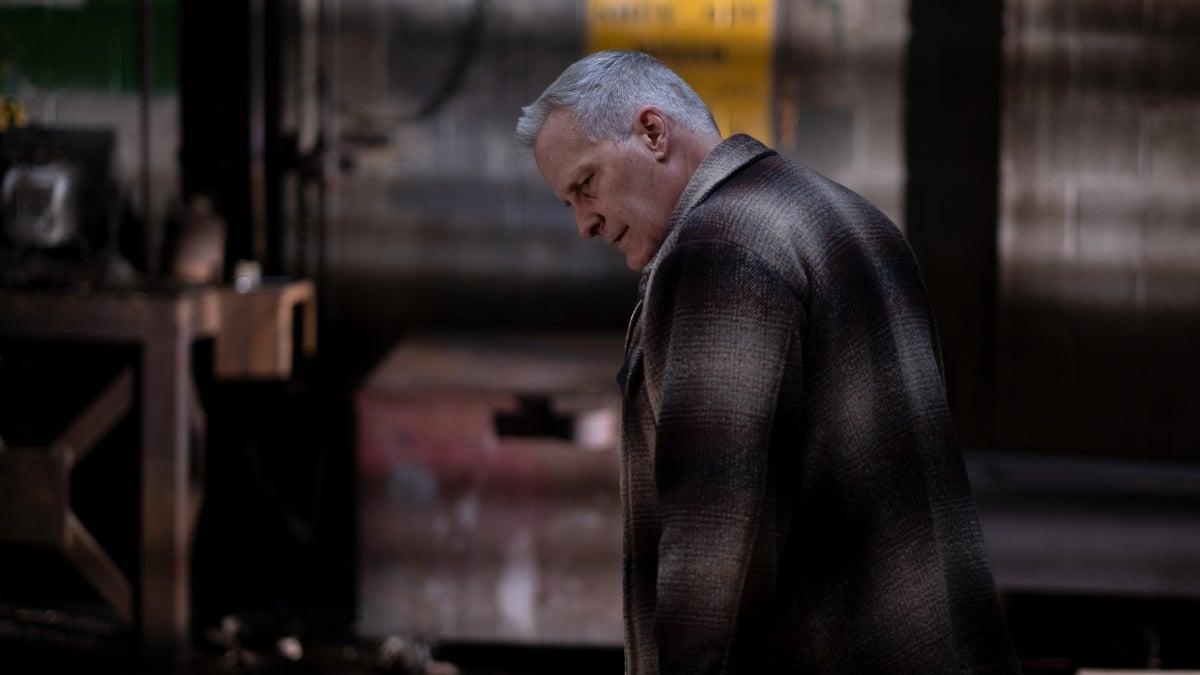Despite Jeff Daniels’ best efforts, American Rust takes boilerplate to the same old level
The new Showtime series from Dan Futterman explores life and death in the Rust Belt without much success
TV Reviews Jeff Daniels
Of all the bad choices made in American Rust’s first episode, the worst is also the least surprising. The show starts by introducing a group of clearly miserable people living and working in the fictional town of Buell, Pennsylvania. There’s an incident in an abandoned mill, the police are called in, and Sheriff Del Harris (Jeff Daniels) takes an interest on his off day, leaving his busy job of stalking an ex to go check out the scene. Once there, he discovers a body that the audience isn’t allowed to see (although the corpse’s identity is neither unexpected nor interesting) and says “Fuck.” The scene then cuts to black, then a title card appears, sending us back six months earlier.
There’s a lot not to like about Rust, a dreary, well-acted, badly written chunk of misery porn, but it’s hard to get over just how wrongheaded the decision to spend almost an hour at the start of the series on an unnecessary flashback is. There’s backstory that’s important to the context of the present events, yes; but it’s the sort of backstory that would’ve been better served by a few lines of dialogue and some ambiguity, not the pace-sapping slog we get here. It’s a baffling structural choice whose only real justification is that, well, this is intended as prestige TV, and you can’t make prestige TV without talented performers looking depressed, mournful acoustic guitar picking over every other scene, and, oh yes, the completely unnecessary in medias res opening.
An adaptation of the acclaimed novel by Philipp Meyer, American Rust tells the story of a young man with problems, and another young man with problems; the horrible crime they may or may not have committed; and the several people around them who also have problems which will inevitably be compounded when they come into contact with the aforementioned crime. Alex Neustaedter plays Billy Poe, a former high school football star trying to put his life together after six months probation for a fight he tried to avoid; Maura Tierney is his mother Grace, stuck in a dead-end job without healthcare that’s slowly destroying her hands. Sheriff Harris has an on-again, off-again relationship with Grace, and when he discovers Billy’s possible involvement with a murder, he has to decide if he wants to break the law or lose a second chance with the woman he loves.
It’s not a terrible setup, and, putting the clumsy first episode aside, there are glimmers of interest here. Daniels is a reliably strong presence, and his dry delivery gives Harris a compelling mixture of wry humor and desperation that helps carry him through the longer dramatic monologues. Tierney’s pragmatism and self-awareness as a performer helps make her character’s shifting romantic loyalties come across as a smart woman finding whatever comfort she can under trying circumstances. Neustaedter bears more than a passing resemblance to Taylor Kitsch, and he’s convincing enough as a decent guy who just can’t quite get his shit together long enough to avoid catastrophe.
The rest of the ensemble cast is good to forgettable, and the show’s efforts to capture the trials and tribulations of small town life are laudable even if the result often ends up feeling more like a checklist from a Wikipedia article than actual lived-in reality. Del, saddled with bad dreams thanks to two different tragic pasts, has an opiod addiction he’s barely managing to keep under control; so does half the town. Big city banks try to auction off the houses of locals who can’t afford to keep up on their mortgage, only to be temporarily stymied by the presence of men embracing their second amendment rights to open carry. A young gay man (David Alvarez) is forced to take care of an ill father who refuses to pay for outside help, watching as any potential for a future dwindles away to nothing.
These are the component parts of a compelling, even vital, narrative; presumably, the source material handled all of this in less tedious ways. The trouble lies in an execution so determined to follow in the footsteps of the genre it’s chosen for itself that it never effectively makes the case for its own existence. Everything in this is predictable, up to and including the inciting incident, a death that looks like a murder but will almost certainly end up being being some kind of terrible accident. The brief moments where the show pretends to be about covering up a crime aren’t bad (one fun scene has Harris giving Billy instructions on what to do about his shoes), but they aren’t unique, and whatever tension exists in them is drowned out by a surfeit of melodrama that never quite rises to the level of camp.
The dialogue is all flatly expository, characters straightforwardly explaining exactly what’s on their mind and the context of a given scene as if the show is terrified an audience might need to put pieces together on their own. (“I’m left permanently taking care of my father, and you lost the love of your life.”) Any glimpses humor or joy are snuffed out by the show’s monochromatic tone, a kind of grim, trudging mournfulness, and while that’s arguably intended as a commentary on the misery of these characters’ lives, it’s unclear why we needed more than an episode or two to get the point. There’s no real intensity here, no suspense as to whether or not a bad situation is going to get worse. Of course, it will; there wouldn’t be a show if it didn’t. Maybe that wouldn’t have been such a bad thing, though. American Rust likely has a story worth telling, and a setting worth exploring, but this version fails to make much of a case for either.